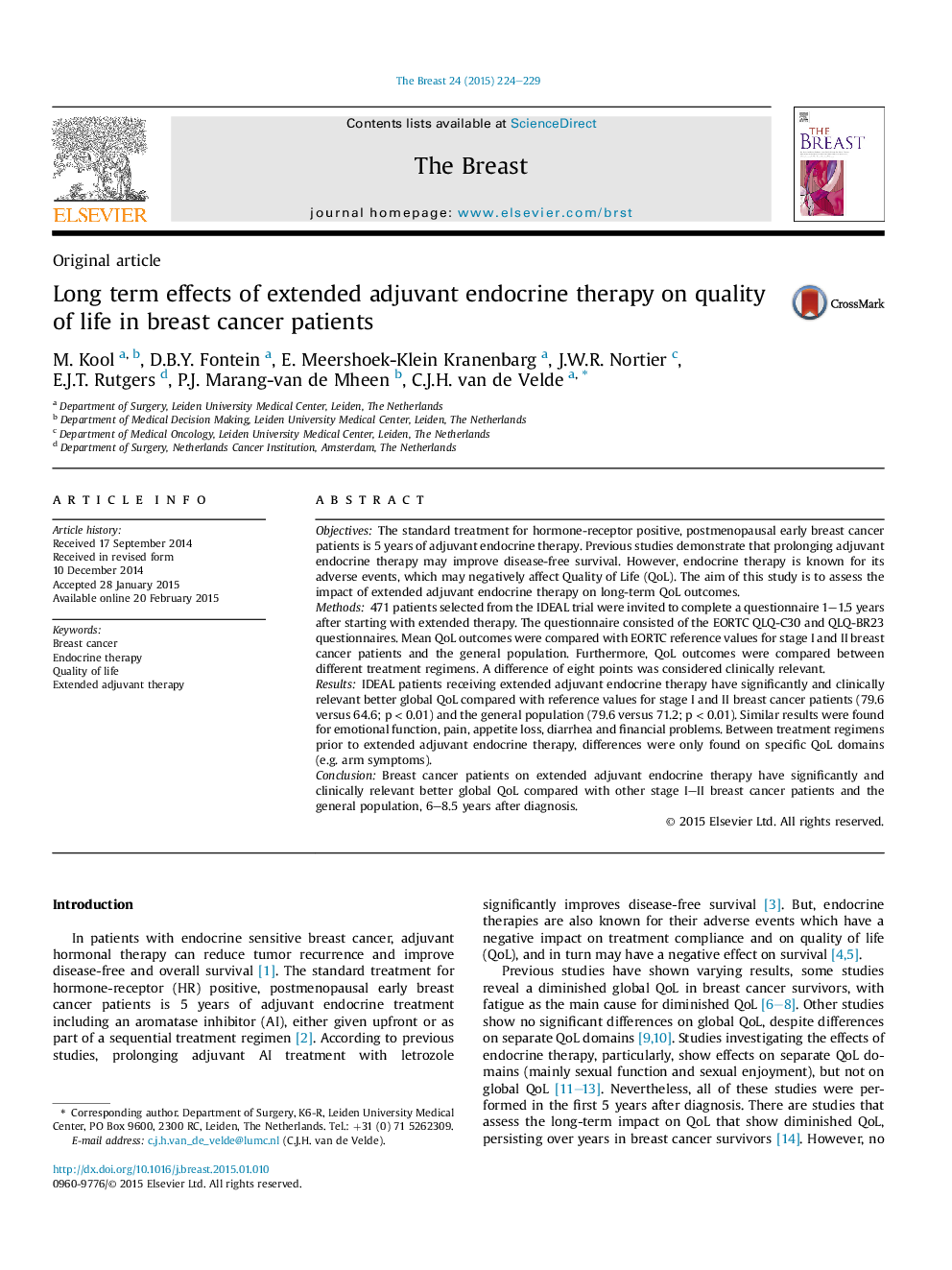| Article ID | Journal | Published Year | Pages | File Type |
|---|---|---|---|---|
| 6169929 | The Breast | 2015 | 6 Pages |
ObjectivesThe standard treatment for hormone-receptor positive, postmenopausal early breast cancer patients is 5 years of adjuvant endocrine therapy. Previous studies demonstrate that prolonging adjuvant endocrine therapy may improve disease-free survival. However, endocrine therapy is known for its adverse events, which may negatively affect Quality of Life (QoL). The aim of this study is to assess the impact of extended adjuvant endocrine therapy on long-term QoL outcomes.Methods471 patients selected from the IDEAL trial were invited to complete a questionnaire 1-1.5 years after starting with extended therapy. The questionnaire consisted of the EORTC QLQ-C30 and QLQ-BR23 questionnaires. Mean QoL outcomes were compared with EORTC reference values for stage I and II breast cancer patients and the general population. Furthermore, QoL outcomes were compared between different treatment regimens. A difference of eight points was considered clinically relevant.ResultsIDEAL patients receiving extended adjuvant endocrine therapy have significantly and clinically relevant better global QoL compared with reference values for stage I and II breast cancer patients (79.6 versus 64.6; p < 0.01) and the general population (79.6 versus 71.2; p < 0.01). Similar results were found for emotional function, pain, appetite loss, diarrhea and financial problems. Between treatment regimens prior to extended adjuvant endocrine therapy, differences were only found on specific QoL domains (e.g. arm symptoms).ConclusionBreast cancer patients on extended adjuvant endocrine therapy have significantly and clinically relevant better global QoL compared with other stage I-II breast cancer patients and the general population, 6-8.5 years after diagnosis.
